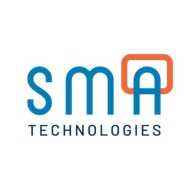

Tidal by Redwood and OpCon compete in the workload automation category. Tidal has the upper hand in enterprise-wide scheduling, while OpCon is particularly effective in financial services due to its advanced automation capabilities.
Features: Tidal by Redwood excels with its holiday-aware job scheduling, segmenting user permissions, and recent client upgrades that enhance security and satisfaction. It offers robust calendaring and cross-platform capabilities to maintain productivity. OpCon shines in automation, especially for financial operations, handling error management effectively and simplifying complex processes with its self-service and integration features.
Room for Improvement: Tidal could improve its reporting capabilities and integration for monitoring long-running jobs. Users mention a learning curve for onboarding and suggest aligning user experience with modern standards. OpCon could enhance its visual interface and improve its entry-level documentation. Optimizations within its graphical interface are also recommended to improve user interaction and handle complex task sequences more efficiently.
Ease of Deployment and Customer Service: Tidal operates primarily on on-premise models with partial support for hybrid and cloud environments. It emphasizes responsive customer service post-separation from Cisco. OpCon, also on-premise, is noted for a helpful and knowledgeable support team. Both prioritize extensive after-deployment support, with Tidal focusing on video and technical documentation for better user transition.
Pricing and ROI: Tidal offers a flexible licensing model that is predictable, providing significant ROI through operational savings in scheduling. OpCon, despite a higher initial cost, offers long-term cost benefits by potentially replacing full-time staff with automation solutions, particularly in financial services. Clients of both solutions should consider additional feature costs beyond base deployments, with Tidal praised for transparency in pricing and OpCon delivering ROI through detailed analytics and automation efficiency.
| Product | Market Share (%) |
|---|---|
| OpCon | 1.7% |
| Tidal by Redwood | 4.7% |
| Other | 93.6% |


| Company Size | Count |
|---|---|
| Small Business | 16 |
| Midsize Enterprise | 29 |
| Large Enterprise | 19 |
| Company Size | Count |
|---|---|
| Small Business | 3 |
| Midsize Enterprise | 6 |
| Large Enterprise | 38 |
OpCon enhances automation with features like auto-scheduling and Corelation KeyStone integration, empowering users with self-service capabilities. Its intuitive interface and flexibility boost productivity, providing reliable automation and efficient file transfers.
OpCon is a powerful automation platform known for streamlining operations through features like auto-scheduling and robust integration capabilities. It facilitates seamless automation, allowing users to execute tasks without direct environment access and simplifies job dependencies. Users benefit from self-service capabilities, which enable easy task execution by non-IT staff, reducing errors and human intervention. With its modern interface, OpCon supports efficient file transfers and integrates effectively with multiple systems, enhancing productivity. While offering significant scalability, OpCon users suggest improvements in web functionality, script-writing, and graphical displays, along with enhancements in user authorization and notification systems. There is also a need for better template management, clearer logging, improved mobile accessibility, and expanded training resources.
What are OpCon's Key Features?OpCon is widely used in industries like financial services, where automation and scheduling tasks are critical. Financial institutions rely on OpCon for core processing tasks, including reporting, automated workflows, and vendor file exchanges. The platform handles high volumes of jobs across platforms, ensuring efficient operations and reducing reliance on manual processes.
Tidal Software is a leading provider of enterprise workload automation solutions that orchestrate the execution of complex workflows across systems, applications and IT environments. With a comprehensive portfolio of products and services, Tidal optimizes mission-critical business processes, increases IT cost efficiencies and satisfies legal and regulatory compliance requirements. Hundreds of customers around the world count on Tidal for modernizing their workload automation and driving their digital transformation. Tidal Software is headquartered in Chicago with offices in Houston, London, Minsk, Belarus and Chennai, India. For more information, visit tidalsoftware.com.
We monitor all Workload Automation reviews to prevent fraudulent reviews and keep review quality high. We do not post reviews by company employees or direct competitors. We validate each review for authenticity via cross-reference with LinkedIn, and personal follow-up with the reviewer when necessary.